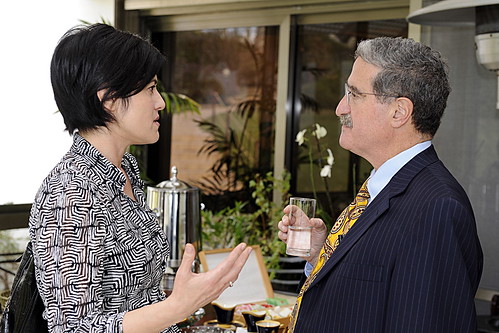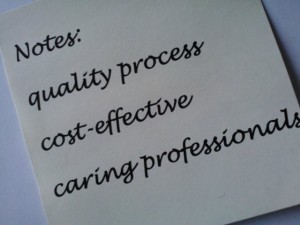
It occurs to me that just as in the rest of our lives, some of the best things in divorce are free.
Here are more than a few free items that I came up with on a recent afternoon.
Initial Consultation
Most importantly, many atttorneys and other divorce professionals offer free (or low cost) initial consultations to help you understand your options. I enjoy offering free consultations because I can make the most impact on a person’s life by helping them at the very beginning before they waste time and money.
General Divorce Information
It’s free to keep reading this blog! There are many helpful articles to help guide your decisions. You can learn what is involved in divorce and how to choose professionals to help you with the divorce process.
Read my Family Law blog called Always Family Center for free information about many Family Law topics.
Learn more about Collaborative Divorce
here.
Want to look through the statute on divorce to get an overview of the law? It’s available for free
here.
Go to your local library. They all have a section on divorce and other legal topics. Why not take advantage of the free books at your local library? You already paid for it with your taxes, right!
Parenting in Divorce
You can view an 8 hour online class for divorcing or separating parents called
Parents Forever for free or very little cost provided by the University of Minnesota.
Children’s Expenses
Here is a link to the Minnesota Department of Human Services publication titled
Understanding Child Support: A Handbook for Parents.
If you are curious about how the Minnesota Guidelines Child Support Calculator works, that’s available for free
here.
If you want to look through the statute on child support to get a more in-depth view of the law, it’s available for free
here.
Budgets
Do you want to know what your budget is? Just look at your checkbook or last credit or debit card statement and make a list of the most common expenses.
Thinking about moving out and living somewhere else and want to know how much it would cost? For rentals, just look online or make some phone calls from ads in the paper, all for free.
Parenting Plans
Want to create a great parenting plan? Consult with a Neutral Child Specialist. You can find one
here. Look for the area titled “Find a Professional by Profession” and then chose “Child Specialist”.
Here is probably the best available court system
parenting schedule guide, which happens to be from Arizona (But helpful regardless of where your kids live!). Here’s the
Parenting Agreement Worksheet from the Minnesota Court system. Again from Minnesota, here is
A Parental Guide to Making Child-Foccused Parenting Time Decisions.
Sending an email to your child’s other parent to tell them that you appreciate something about their parenting is free.
Picking up the phone and talking with your ex about your child’s upcoming events is free (or nearly free).
Want to search for a Collaborative Divorce attorney or financial professional or coach or child specialist? It’s right here on the
Minnesota Collaborative Law Institute website.
 Once you have reached the difficult conclusion that your marriage is over, opening the door to discussing divorce with your spouse is never easy. Yet the way that you choose to talk about a possible divorce may have an enormous impact on you and your family for many years.
Should you carefully plan your legal strategy before talking to your spouse or should you be open and honest? Does the answer depend on whether you are more interested in protecting your money or your integrity? In truth, the answer may be the same either way.
Yes, if you want to preserve the dignity of your family, protect your children from an adversarial divorce and honor your own sense of integrity, an open approach is likely to be your best choice. At the same time, if you want to protect your interests and make sure that you get the best financial result, your best choice is probably, and here is the big surprise, an open and honest approach.
From working with families as a divorce lawyer for 30 years, it is clear to me that starting the divorce in an open and transparent manner almost always leads to a better outcome, in every respect. Secretly planning for the divorce and hiding your plans from your spouse will not lead to any advantages when the divorce happens, and will likely fuel fear and suspicion that can make your divorce a nightmare.
Despite this reality, many attorneys will still advise clients to engage in secret divorce planning strategies that often help the lawyer more than they help the clients. Before taking these steps, you need to get a second opinion. One way to achieve this is to schedule a free consultation with an experienced Collaborative attorney.
Once you have reached the difficult conclusion that your marriage is over, opening the door to discussing divorce with your spouse is never easy. Yet the way that you choose to talk about a possible divorce may have an enormous impact on you and your family for many years.
Should you carefully plan your legal strategy before talking to your spouse or should you be open and honest? Does the answer depend on whether you are more interested in protecting your money or your integrity? In truth, the answer may be the same either way.
Yes, if you want to preserve the dignity of your family, protect your children from an adversarial divorce and honor your own sense of integrity, an open approach is likely to be your best choice. At the same time, if you want to protect your interests and make sure that you get the best financial result, your best choice is probably, and here is the big surprise, an open and honest approach.
From working with families as a divorce lawyer for 30 years, it is clear to me that starting the divorce in an open and transparent manner almost always leads to a better outcome, in every respect. Secretly planning for the divorce and hiding your plans from your spouse will not lead to any advantages when the divorce happens, and will likely fuel fear and suspicion that can make your divorce a nightmare.
Despite this reality, many attorneys will still advise clients to engage in secret divorce planning strategies that often help the lawyer more than they help the clients. Before taking these steps, you need to get a second opinion. One way to achieve this is to schedule a free consultation with an experienced Collaborative attorney.  Once you have reached the difficult conclusion that your marriage is over, opening the door to discussing divorce with your spouse is never easy. Yet the way that you choose to talk about a possible divorce may have an enormous impact on you and your family for many years.
Should you carefully plan your legal strategy before talking to your spouse or should you be open and honest? Does the answer depend on whether you are more interested in protecting your money or your integrity? In truth, the answer may be the same either way.
Yes, if you want to preserve the dignity of your family, protect your children from an adversarial divorce and honor your own sense of integrity, an open approach is likely to be your best choice. At the same time, if you want to protect your interests and make sure that you get the best financial result, your best choice is probably, and here is the big surprise, an open and honest approach.
From working with families as a divorce lawyer for 30 years, it is clear to me that starting the divorce in an open and transparent manner almost always leads to a better outcome, in every respect. Secretly planning for the divorce and hiding your plans from your spouse will not lead to any advantages when the divorce happens, and will likely fuel fear and suspicion that can make your divorce a nightmare.
Despite this reality, many attorneys will still advise clients to engage in secret divorce planning strategies that often help the lawyer more than they help the clients. Before taking these steps, you need to get a second opinion. One way to achieve this is to schedule a free consultation with an experienced Collaborative attorney.
Once you have reached the difficult conclusion that your marriage is over, opening the door to discussing divorce with your spouse is never easy. Yet the way that you choose to talk about a possible divorce may have an enormous impact on you and your family for many years.
Should you carefully plan your legal strategy before talking to your spouse or should you be open and honest? Does the answer depend on whether you are more interested in protecting your money or your integrity? In truth, the answer may be the same either way.
Yes, if you want to preserve the dignity of your family, protect your children from an adversarial divorce and honor your own sense of integrity, an open approach is likely to be your best choice. At the same time, if you want to protect your interests and make sure that you get the best financial result, your best choice is probably, and here is the big surprise, an open and honest approach.
From working with families as a divorce lawyer for 30 years, it is clear to me that starting the divorce in an open and transparent manner almost always leads to a better outcome, in every respect. Secretly planning for the divorce and hiding your plans from your spouse will not lead to any advantages when the divorce happens, and will likely fuel fear and suspicion that can make your divorce a nightmare.
Despite this reality, many attorneys will still advise clients to engage in secret divorce planning strategies that often help the lawyer more than they help the clients. Before taking these steps, you need to get a second opinion. One way to achieve this is to schedule a free consultation with an experienced Collaborative attorney. 



 It occurs to me that just as in the rest of our lives, some of the best things in divorce are free.
Here are more than a few free items that I came up with on a recent afternoon.
Initial Consultation
Most importantly, many atttorneys and other divorce professionals offer free (or low cost) initial consultations to help you understand your options. I enjoy offering free consultations because I can make the most impact on a person’s life by helping them at the very beginning before they waste time and money.
General Divorce Information
It’s free to keep reading this blog! There are many helpful articles to help guide your decisions. You can learn what is involved in divorce and how to choose professionals to help you with the divorce process.
Read my Family Law blog called Always Family Center for free information about many Family Law topics.
Learn more about Collaborative Divorce
It occurs to me that just as in the rest of our lives, some of the best things in divorce are free.
Here are more than a few free items that I came up with on a recent afternoon.
Initial Consultation
Most importantly, many atttorneys and other divorce professionals offer free (or low cost) initial consultations to help you understand your options. I enjoy offering free consultations because I can make the most impact on a person’s life by helping them at the very beginning before they waste time and money.
General Divorce Information
It’s free to keep reading this blog! There are many helpful articles to help guide your decisions. You can learn what is involved in divorce and how to choose professionals to help you with the divorce process.
Read my Family Law blog called Always Family Center for free information about many Family Law topics.
Learn more about Collaborative Divorce 

